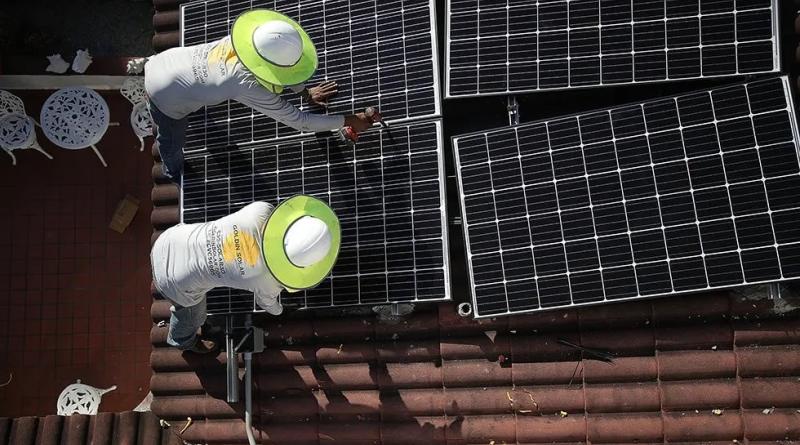Accelerating zero-carbon push could save globe $12 trillion: study

While switching to renewable energy sources is often framed as an expensive if necessary sacrifice, a new study suggests a transition away from fossil fuels will ultimately save the world’s economies trillions of dollars.
The study from Oxford University suggests that transitioning away from fossil fuels represents a “win-win-win,” researchers say, yielding bigger worldwide cost savings the faster it’s implemented.
“There is a pervasive misconception that switching to clean, green energy will be painful, costly and mean sacrifices for us all – but that’s just wrong,” lead researcher Doyne Farmer said in a statement.
A global transition from fossil fuels to renewables by 2050 would save the world’s economies a minimum of $12 trillion, according to the study published on Tuesday in the scientific journal Joule.
In that “fast transition” scenario, the world moves off fossil fuels entirely but still is able to generate 55 percent more energy than today by standing up both existing and emerging green technologies, researchers maintained.
Various countries and leaders have pushed to achieve net-zero emissions by 2050, from the Biden administration in the U.S. to Conservative leadership in the UK. It’s also the minimum deadline agreed upon by the Science Based Targets initiative, which helps corporations plan their net-zero strategy.
But while the study’s accelerated timeline budgets nearly three decades for a full transition away from fossil fuels, major hurdles remain for switching completely to renewable sources, including political and industry opposition as well as carbon-heavy reliance in certain sectors such as manufacturing.
The savings predicted by the Oxford team are in comparison to a pathway in which the world takes additional decades to move to renewables — or doesn’t do it at all.
“Past models, predicting high costs for transitioning to zero carbon energy, have deterred companies from investing,” lead author Rupert Way said in a statement.
Way added that such models also “made governments nervous about setting policies that will accelerate the energy transition and cut reliance on fossil fuels.”
But prices of wind and solar energy have fallen far faster than those models predicted. To take one example, over the past 20 years the cost of solar energy has dropped twice as fast as even the most bullish models suggested.
Even in 2021, building new renewable wind or solar plants was cost-competitive with buying fossil fuels for an existing thermal plant, and sometimes cheaper, according to an analysis from BloombergNEF.
Rising commodity prices for compounds like polysilicon amid the global rush for renewables may change those financials over the short term, Bloomberg noted.
But over the long term, the Oxford team found, wind energy, battery storage technology and other frontier storage technologies like hydrogen electrolysis are likely to experience similar price drops — and those plunging costs will drop ever faster the more investment the sectors in question receive, researchers said.
Renewables “will become cheaper than fossil fuels across almost all applications in the years to come. And, if we accelerate the transition, they will become cheaper faster,” Farmer said.





